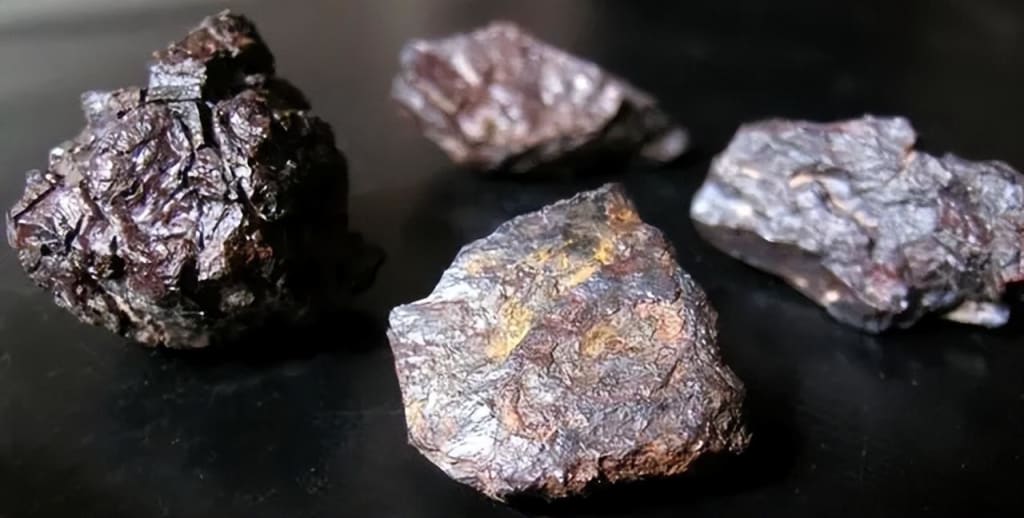Water found in meteorite?
Meteorites are more expensive than diamonds

What does it mean when water is found in a meteorite? Meteorites are more expensive than diamonds? Where can I pick up meteorites? Does it count as the country's or your own if you find it?
The water of the earth comes from the sky!
Recently, the UK found extraterrestrial water in a meteorite, and it is "very, very similar" to the water of the Earth.
The meteorite came from an asteroid near Jupiter, which was formed about 4.6 billion years ago and took about 300,000 years to reach Earth.
Where exactly did the water on Earth come from?
On this issue, scientists have been arguing for years. Some scientists believe that the water on Earth came from the Earth itself and that there was already liquid water inside the Earth when it was born, and after the wild bombardment by meteorites and comets, the water inside was blown out and poured into the surface, turning into an ocean.
The second view, which is now generally accepted, is that the water on Earth came from space and that it was these asteroids with water that collided with the Earth and sent water to the planet.
If there is water, there is life. Is it possible that there is also another life in the solar system?
The answer is highly likely.
Where do meteorites come from?
Most of the meteorites on Earth come from the asteroid belt between Mars and Jupiter.
These asteroids are in their orbits and are constantly colliding, sometimes being knocked out of their orbits towards Earth, and when they enter the atmosphere, they burn with friction and become meteors.
When an explosion occurs, a meteor shower is formed, and those that do not burn outfall Earth and become meteorites.
More than 40,000 meteorite samples have been collected worldwide, and they can generally be divided into three main categories: stony meteorites, iron meteorites, and stone-iron mixed meteorites.
Stony meteorites are the most abundant, and on March 8, 1976, a massive meteor shower landed in Jilin, and more than 100 pieces of stone meteorites were collected at once, with a total weight of more than 2600 kg. The largest meteorite, No. 1, weighed 1770 kg and was the heaviest piece of stone meteorite searched in the world.
Iron meteorites are much heavier than stone meteorites, with the heaviest one in Namibia, Africa, weighing 60 tons. The "Silver Camel" found in Xinjiang, China, weighs about 28 tons and is the third largest iron meteorite in the world.

No meteorites in craters?
Many large craters have been discovered, such as a 170-meter-deep, 1,240-meter-diameter crater in Arizona, USA, and a 300-kilometer-diameter crater in Antarctica.
But in these craters, there are no meteorites? Could it be that someone has taken them?
The speed of the meteorite when it hit the ground could reach 10 km/s, and the pressure of the shock wave could reach several hundred quarter-pars GPa, in which case the granite could be evaporated into gas.
In other words, during the impact, smaller meteorites are directly vaporized and disintegrated, larger meteorites break up, and a large number of meteorite fragments are splashed outside the crater.
Therefore, the meteorites in the crater are not picked up but are crashed into slag, and some of them cannot even be found.
Where can I pick them up?
Every time a meteorite falls, it triggers a wave of Baobab customers, and at exaggerated times meteorites are speculated to tens of thousands of dollars a gram, much more expensive than gold and diamonds! But experts say that the meteorite also has scientific research value, and ordinary people's collection is not very meaningful.
In China, we must ask where the most meteorites are, that is Xinjiang.
According to the relevant data since 2007, Xinjiang has discovered nearly 80 meteorites, accounting for more than 20% of the country.
Xinjiang has an area of 1.6 million square kilometers, which is about one-sixth of the country, and in addition to that, Xinjiang has a vast desert, which is a natural storehouse for meteorites, so the chances of finding meteorites are greater than elsewhere.
But an expert with more than a decade of experience in meteorite collection prospecting has said bluntly in Xinjiang News that "95% of meteorites on the market today are fake".
How to identify real and fake meteorites?
When a meteorite flies at a high altitude, the temperature reaches several thousand degrees, and the surface of the meteorite melts directly into a liquid, forming a shell called a "molten crust" after cooling.
The crust is very thin, usually about 1 mm, and is black or brown.
During the cooling of the crust, traces of air blowing over the surface of the meteorite are also preserved, called "air marks", which look much like fingerprints pressed into the dough.
The molten crust and air marks are the main features of the meteorite surface.
However, in some older meteorites, the molten crust may have fallen off, so what can we do? There is a way!
Meteorites generally contain a few percent of iron, which will be heavier than rocks of the same volume when weighed by hand, and also magnetic, which can be found by trying with a suction stone.
In addition, the meteorite will have a lot of small spheres in the cross-section, usually about 1 mm, which is an important marker to identify the stone meteorite.
Of course, these are only auxiliary means of identification, the real identification still requires professionals to analyze instruments.
Do I need to turn in a meteorite?
Do I need to turn in a meteorite to the state or can I trade it privately?
The Constitution and the Property Law stipulate that natural resources belong to the state. However, it is not clear whether meteorites are natural resources or not.
In 2008, a farmer in Beanie City, Heilongjiang Province, was involved in a lawsuit with a domestic planetarium over the ownership of a meteorite, as reported in the New Beijing News.
The planetarium argued that the meteorite should be owned by the state, just like fossils. The farmer's attorney argued that the meteorite did not belong to the earth and should be "first come, first served".
In the end, the farmer and the planetarium also reached an agreement to deliver the meteorite to the planetarium and receive some financial compensation.
About the Creator
Many A-Sun
Where your interests lie, that's where your abilities lie.






Comments
There are no comments for this story
Be the first to respond and start the conversation.